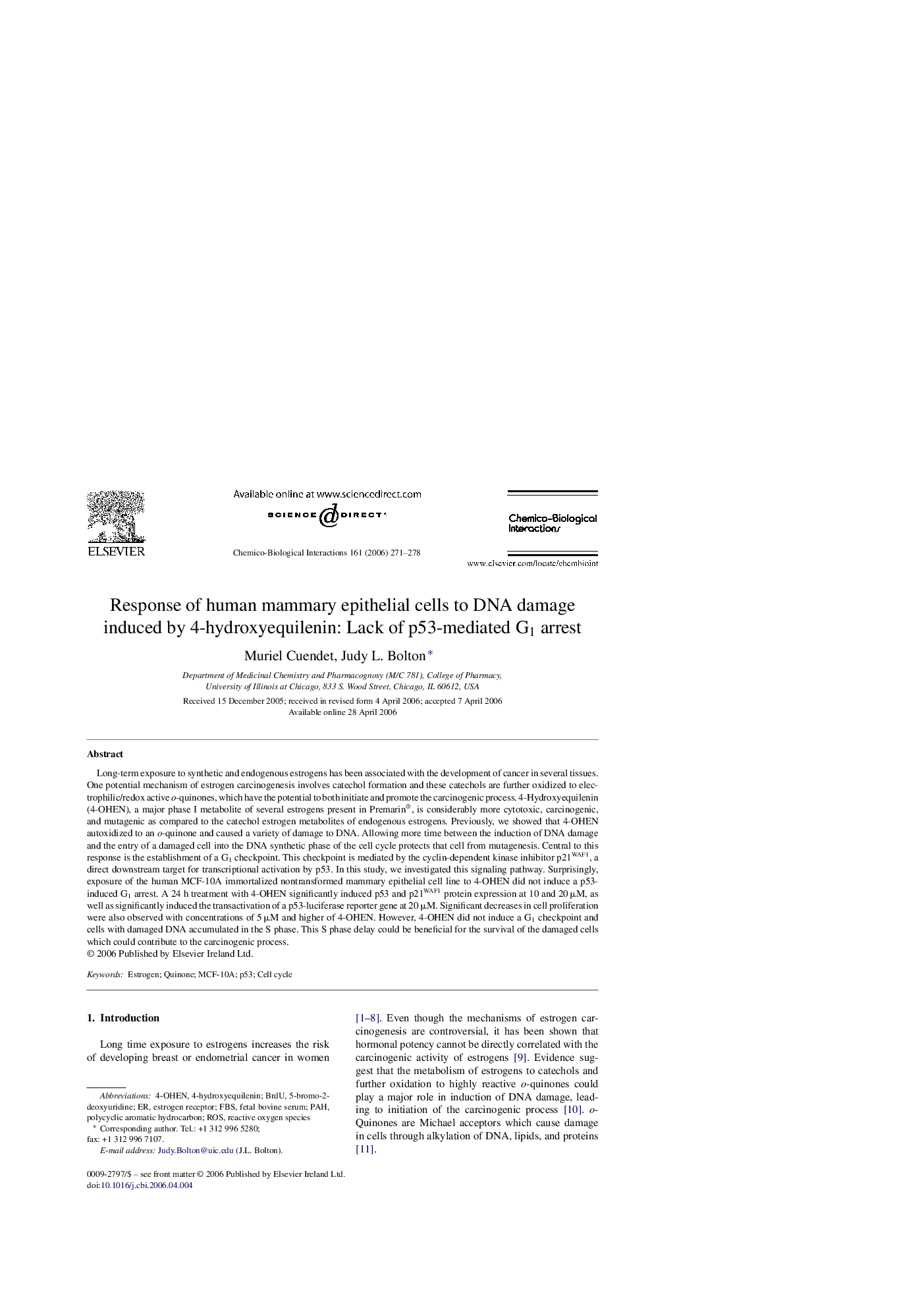| کد مقاله | کد نشریه | سال انتشار | مقاله انگلیسی | نسخه تمام متن |
|---|---|---|---|---|
| 2582392 | 1130235 | 2006 | 8 صفحه PDF | دانلود رایگان |

Long-term exposure to synthetic and endogenous estrogens has been associated with the development of cancer in several tissues. One potential mechanism of estrogen carcinogenesis involves catechol formation and these catechols are further oxidized to electrophilic/redox active o-quinones, which have the potential to both initiate and promote the carcinogenic process. 4-Hydroxyequilenin (4-OHEN), a major phase I metabolite of several estrogens present in Premarin®, is considerably more cytotoxic, carcinogenic, and mutagenic as compared to the catechol estrogen metabolites of endogenous estrogens. Previously, we showed that 4-OHEN autoxidized to an o-quinone and caused a variety of damage to DNA. Allowing more time between the induction of DNA damage and the entry of a damaged cell into the DNA synthetic phase of the cell cycle protects that cell from mutagenesis. Central to this response is the establishment of a G1 checkpoint. This checkpoint is mediated by the cyclin-dependent kinase inhibitor p21WAF1, a direct downstream target for transcriptional activation by p53. In this study, we investigated this signaling pathway. Surprisingly, exposure of the human MCF-10A immortalized nontransformed mammary epithelial cell line to 4-OHEN did not induce a p53-induced G1 arrest. A 24 h treatment with 4-OHEN significantly induced p53 and p21WAF1 protein expression at 10 and 20 μM, as well as significantly induced the transactivation of a p53-luciferase reporter gene at 20 μM. Significant decreases in cell proliferation were also observed with concentrations of 5 μM and higher of 4-OHEN. However, 4-OHEN did not induce a G1 checkpoint and cells with damaged DNA accumulated in the S phase. This S phase delay could be beneficial for the survival of the damaged cells which could contribute to the carcinogenic process.
Journal: Chemico-Biological Interactions - Volume 161, Issue 3, 1 July 2006, Pages 271–278